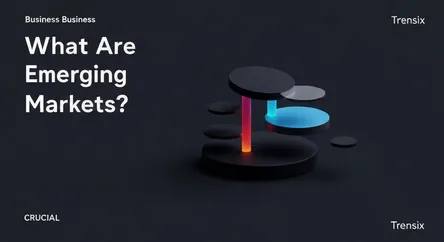Business
What Are Emerging Markets?

Discover emerging markets: developing nations with rapid economic growth and investment potential. Learn why they're key players in the global economy.
What is it?
An emerging market is the economy of a developing nation that is becoming more engaged with global markets as it grows. These countries are characterized by rapid industrialization, high growth rates, and a move away from traditional, agriculture-based economies towards more industrial and service-oriented ones. While they offer higher potential returns, they also carry more risk due to political instability, currency fluctuations, and less developed regulatory systems. Classic examples include countries like Brazil, India, China, and South Africa.
Why is it trending?
Emerging markets are trending because they are seen as the primary engines of future global growth. Investors are drawn to them for the potential of high returns that are often unavailable in mature, developed markets. Furthermore, multinational corporations see these nations as vast, untapped consumer markets with a rapidly growing middle class. Recent global events and supply chain disruptions have also accelerated interest in diversifying investments and manufacturing away from single-country dependencies, putting a spotlight on various emerging economies.
How does it affect people?
For citizens within emerging markets, this growth can lead to higher wages, increased job opportunities, and improved standards of living. However, it can also bring challenges like rising inequality and environmental concerns. For people in developed countries, the rise of emerging markets means access to a wider variety of less expensive goods and new opportunities for investment through pension funds and stocks. It also creates a more competitive global landscape for jobs and resources, fundamentally shifting international economic and political power dynamics.